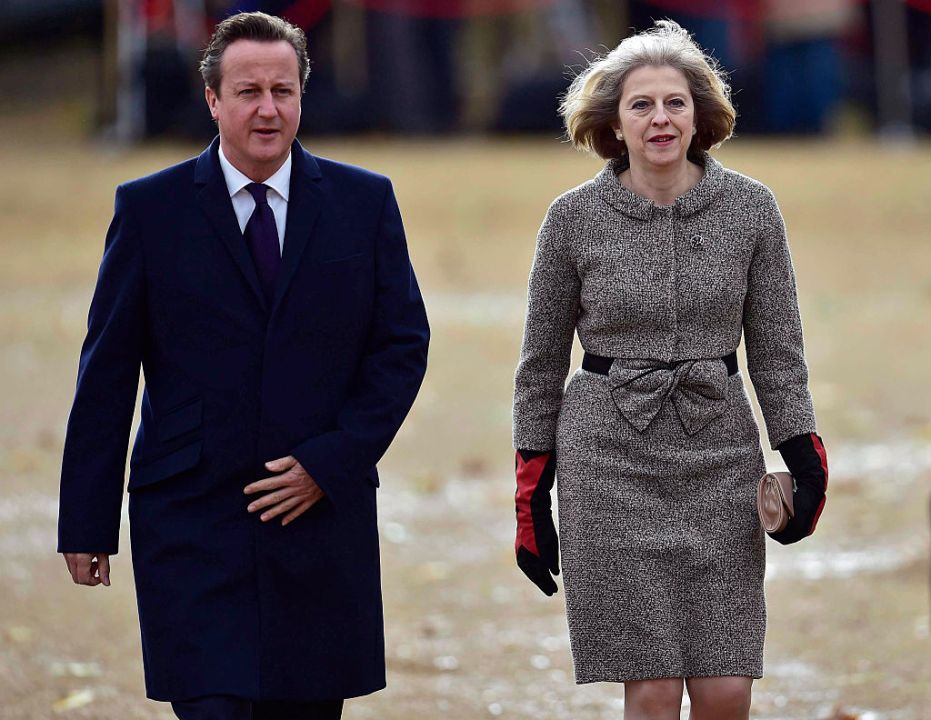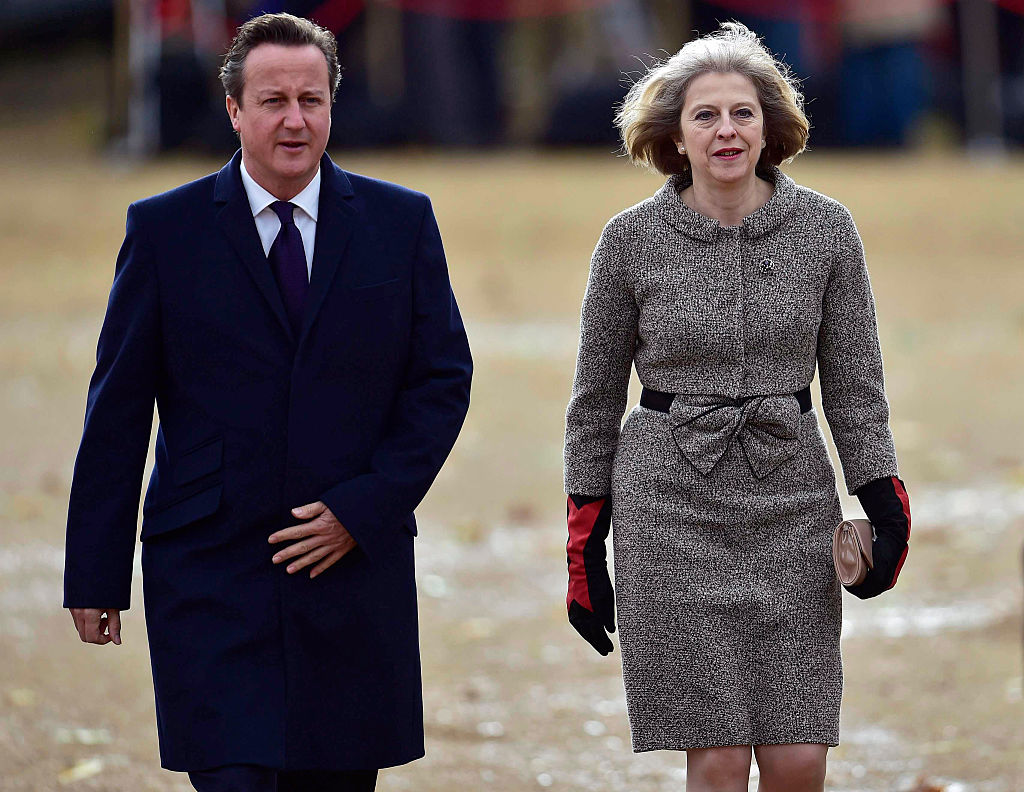Theresa May has few friends at the moment. But while her Christmas card list might be dwindling, her tally of critics is growing rapidly. Yesterday, John Major urged the Prime Minister to ditch a deal with the DUP or risk jeopardising the peace process in Northern Ireland. Now, David Cameron has waded in, calling for the PM to adopt a ‘softer’ approach to Brexit in the wake of last week’s election disaster. The former PM also said that his successor should change tack and ‘listen to other parties’ on the best way of leaving the EU.
So, just another ex-Tory leader with too much time on their hands determined to take up the role of a backseat driver? The headlines reporting Cameron’s intervention — ‘David Cameron calls on Theresa May to embrace “softer” Brexit’ — suggest as much. Yet there’s more to Cameron’s comments than meets the eye. And the former PM isn’t being entirely unhelpful to his successor.
Firstly, Cameron has said May made the right move in staying put in Downing Street. This begs the question of why he didn’t do the same after the referendum but, that point aside, it’s still useful for a PM who remains under pressure to have such firm backing from her predecessor.
There’s also a wider point about Cameron’s remarks, which he made to a business conference in Poland, that could help the PM foster a Brexit which isn’t just of the Tories own making. One of the dangers with Theresa May having won a thumping majority would have been that the party would, inevitably, have ended up entirely owning the process of Britain’s departure from the EU. If things went wrong, there would be no one to blame but themselves. Of course, it’s not worked out that way — and seeking agreement with the other parties is now a must, as Cameron points out. But rather than this being a hindrance, the loss of the Conservatives’ majority could actually help the Tories forge a departure from the EU which is reached having listened to a wider group of voices in Parliament. This will make it harder for the government’s critics to turn around later on and criticise the approach to Brexit. Of course, though, there’s a danger that some Brexiteers may interpret this as a form of backsliding (Ukip are suggesting as much already). Yet Cameron is right to make the point that now is a time for listening.
There are already signs that the government may be doing just that. Yesterday, Michael Gove called for a ‘maximum possible consensus’ to be reached on Brexit. It’s true that Downing Street has so far knocked down the suggestion of a cross-party Brexit ‘commission’. But Gove’s comments are a welcome signal that the Tories are now prepared to move beyond saying ‘Brexit means Brexit’. May would be wise to listen to her predecessor.








Comments